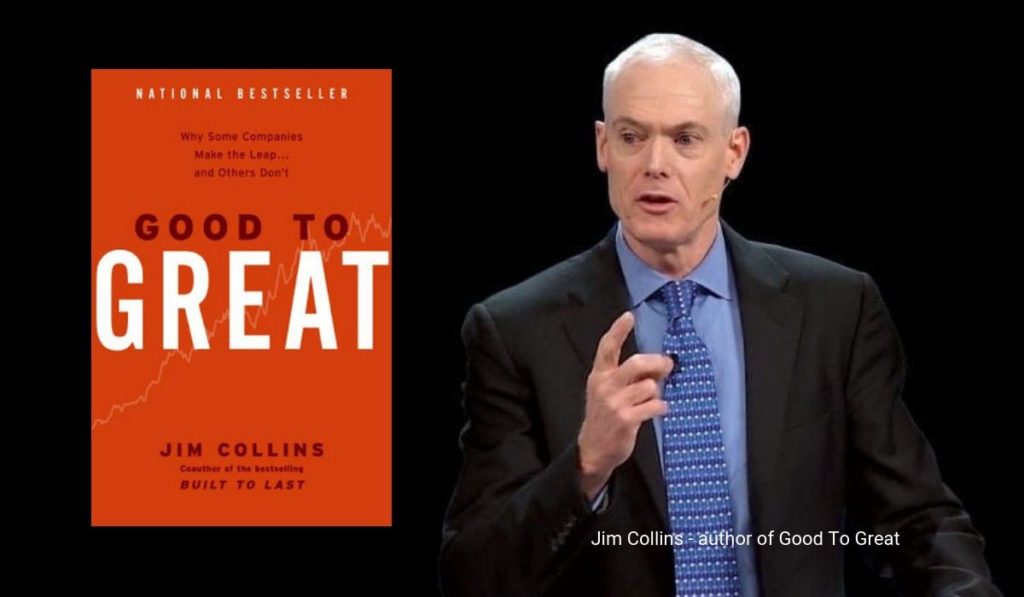Keen to change the world? Want to transform your “caterpillars” into “butterflies”?
Well, former Apple chief evangelist Guy Kawasaki’s Enchantment: The Art of Changing Hearts, Minds and Actions may show you a trick or two.
Keen to change the world? Want to transform your “caterpillars” into “butterflies”?
Well, former Apple chief evangelist Guy Kawasaki’s Enchantment: The Art of Changing Hearts, Minds and Actions may show you a trick or two.

Have you wondered why some people can accomplish so much with their lives, while others simply drift by?
The answer to that is time management. Or more precisely, managing the months, weeks, days and hours of your time.

We’ve seen it happen time and time again.
A company starts off with great fanfare, led by a charismatic and visionary leader. She or he brings it to new heights. Growth is healthy and flourishing – year after year.
There is crystal clarity in what the company does. It attracts a loyal tribe of customers and fans.

How do companies like GE, Wal-Mart and Honeywell succeed? What is the secret of Jack Welch, one of the most legendary CEO in the business world today?
The answer, according to Larry Bossidy and Ram Charan, is Execution. Subtitled The Discipline of Getting Things Done, the New York Times bestseller emphasises the importance of execution in business, how companies with an execution culture conduct their business affairs, and its three core processes: people, strategy and operations.
Written by Ken Blanchard of “The One Minute Manager” fame, together with his co-authors John Britt, Pat Zigarmi and Judd Hoekstra, “Who Killed Change?” is a whodunnit with a business twist. The slim volume is easily read in one sitting and imbues one with useful pointers when implementing change management.
The plot goes like this. Somebody in the ACME organisation has killed Change. In this case, Change of course represents Change Management – a very necessary ingredient for enduring organisational effectiveness when things no longer become business as usual.

Courtesy of Jim Collins
Are charismatic superstar CEOs the answer to enduring success? What about dramatic mergers and acquisitions – aren’t those the panacea to ailing companies?
What about those awe-inspiring cutting edge technologies like virtual reality, artificial intelligence and blockchain? Surely those ought to at least have an impact on greatness, right?
Known as the “Oracle of Omaha”, Warren Buffett was once the richest man in the world. With an uncanny ability to sniff out good companies that beat the market time and again, Buffett was able to amass an amazing fortune of US$44 billion. What’s amazing is that he also intends to give most of it away to charity. Buffett’s company, the world famous Berkshire Hathaway group, own some 88 businesses and employ 233,000 workers worldwide.
What few people know is that Buffett is not just a savvy investor but a great manager and business leader. In the audio book, “Warren Buffett’s Management Secrets”, Mary Buffett (Buffett’s former daughter-in-law) and David Clark depicts some of the management philosophies behind the billionaire’s success.
Rohit Bhargava and Likeonomics (source of image)
We are facing a crisis of believability in big businesses and brands.
Triggered by the collapse of the financial system in 2008, widespread deceit by big corporate brands and sheer volume of advertising “clutter”, consumers distrust big brands, companies and governments more than ever before.
To many of us, Timothy Ferriss is living the dream life. Touting himself as a “serial entrepreneur” and “ultra-vagabond”, the author of the uber bestseller “The 4-Hour Workweek” works from anywhere around the world, pursuing activities as varied as skiing in the Andes, tango dancing in Buenos Aires, or racing motorcycles in Europe.
How does he do it?
Serial entrepreneur and billionaire Lynda Resnick’s book “Rubies in the Orchard” provides a fascinating glimpse into the marketing strategies behind brands like POM Wonderful, FIJI Water, Teleflora and the Franklin Mint. Part autobiography and part business book, the highly readable tome chronicled how Lynda rose from rags to riches and deployed her marketing smarts to seed and grow four highly successful businesses.
Written in a witty and conversational fashion, Rubies in the Orchard presents an in-depth glimpse into four very different industries. In the section on Teleflora, Lynda described how marketing is “all about listening. You want to be the equivalent of a good friend”. She then described how an attribute can be a Unique Selling Proposition (USP) based on the following: